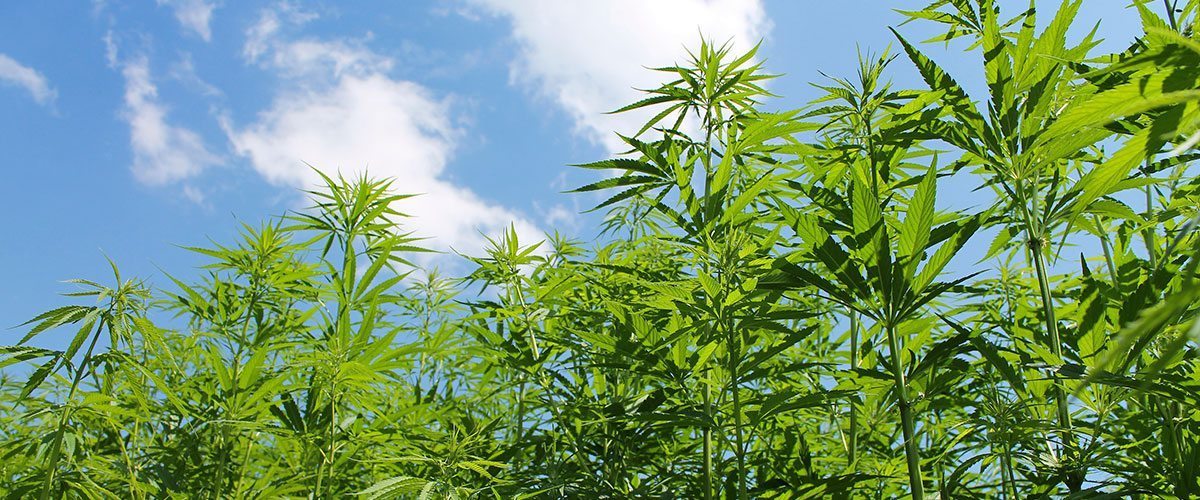The market potential of Kentucky’s industrial hemp industry continues to grow, according to the state’s Governor’s Office of Agricultural Policy.
Kentucky’s industrial hemp market continues to show signs of expansion, the Governor’s Office of Agricultural Policy (GOAP) explained to a state legislative panel last month. The GOAP’s Executive Director, Warren Beeler, told the Tobacco Settlement Agreement Fund Oversight Committee that this year’s hemp crops would cover 4,500 acres statewide.
One corporation in particular is driving the market’s growth in the state. The single company is importing 23,000 pounds of hemp seed to plant over 2,466 acres alone.
“And so we’re intrigued by what they’re getting done,” said Beeler.
The 12-member oversight committee, which is responsible for supervising “matters pertaining to the Agricultural Development Board,” manages the spending of the funds collected from the Tobacco Master Settlement Agreement (MSA). The committee, specifically its co-chair Sen. C.B. Embry (R-Morgantown), was pleased with the news of the market’s progress.
“Very good, I think it shows hemp is moving,” said Embry.
Kentucky was among the first to take advantage of the passing of the 2014 Farm Bill section 7606, which authorized Departments of Agriculture and universities to cultivate industrial hemp under an agricultural pilot program or for academic research.
This will be Kentucky’s third year running the pilot program, which continues to surge, according to a recent report by the Kentucky-based NBC news affiliate LEX18.com.
Under the Tobacco MSA, tobacco companies pay various annual payments to states like Kentucky to compensate for medical costs linked to smoking-related health conditions. The single corporation that is dominating Kentucky’s hemp cultivation got its start with $492,000 tobacco settlement dollars that were allotted for a hemp-related project.
Kentucky took a significant economic hit with the downfall of the tobacco industry, but Beeler hopes by embracing hemp production, the state can replace lost income.
“We went from 33 acres… to somewhere in the neighborhood of 4,000 to 5,000 this year, and I don’t think anybody much is raising this stuff who doesn’t have a contract or place to get rid of it,” he said.
“How big is the market? We don’t know that,” Beeler said. “Who knows where we might be in 20 years?” he later added.
Committee Co-Chair Rep. Wilson Stone (D-Scottsville), believes the strategy for marketing industrial hemp shares similarities to marketing tobacco.
“The thing about tobacco is you know if you’ve got a contract, you had a price sheet that went along with that contract. And if you grow what that price sheet says you can sell it for that amount of money. So I think we need to get to a place, and hopefully we will soon, where the hemp folks understand that same thing,” Stone said.
Kentucky farmers interested in participating in Kentucky’s industrial hemp program must be selected through an application process. Once accepted, farmers must agree to execute under the program’s guidelines and for the purposes of conducting research.
Hemp is a non-psychoactive variety of the Cannabis sativa plant. It can be processed into various items like food, textiles, paper, clothing, building materials, biodegradable plastics, paint, and biofuel. Most of the hemp cultivated in Kentucky, however, is processed for its cannabidiol (CBD), a non-psychoactive compound shown through studies to possess several medicinal properties.
Several states so far unwilling to pass comprehensive medical marijuana legislation have passed laws allowing patients legal access to CBD oil derived from marijuana. Kentucky, for example, adopted legislation in 2014 that distinguishes CBD oil from marijuana and allows access for the treatment of epilepsy.
CBD oil derived from hemp is legal to purchase in all 50 states and 40 international countries. Learn more about Medical Marijuana, Inc.’s CBD hemp oil, tinctures, salves, and more at our online shop.






